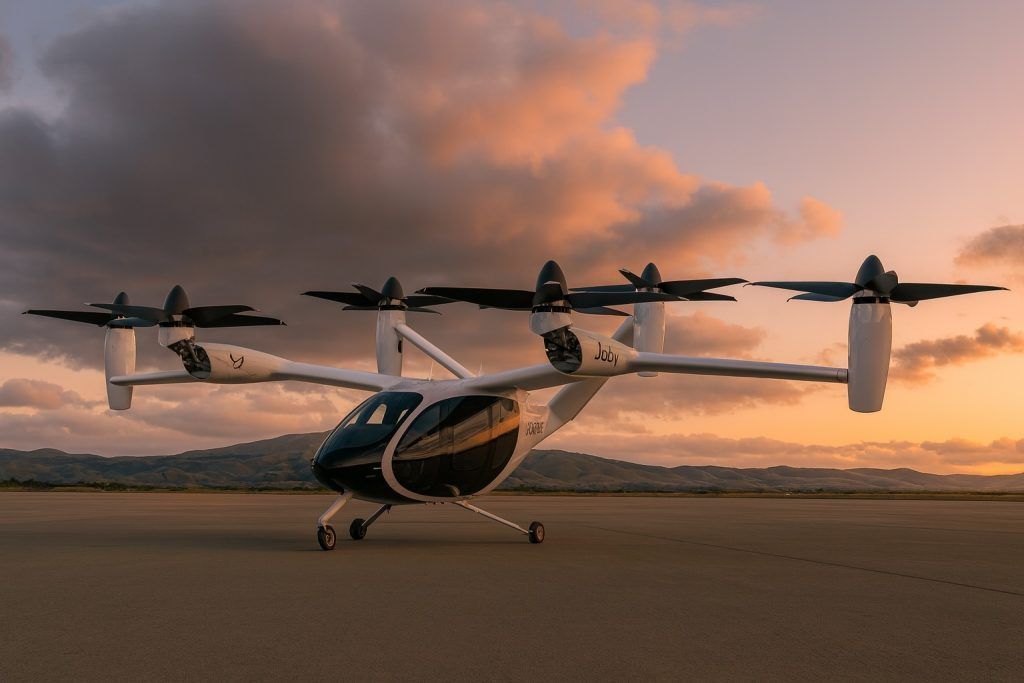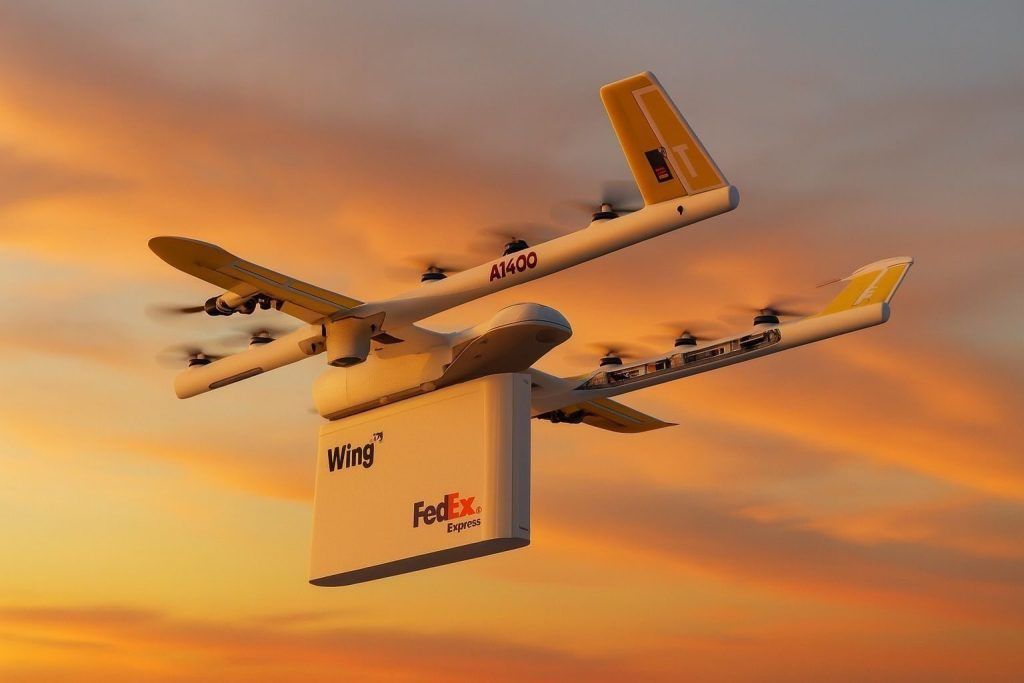- Luxembourg implements EU drone rules by risk category (Open, Specific, Certified), with no legal distinction between recreational and commercial pilots.
- Open category comprises three subcategories—A1, A2, and A3—defined by drone weight and proximity to people, with most everyday flights falling under Open.
- Maximum altitude is 120 meters above ground, drones must stay in visual line of sight (about 500 meters), FPV flights require a spotter, and night flights are allowed in Open if lighting and rules are followed.
- Registration is mandatory for most operators: drones over 250 g must be registered as a UAS Operator, lighter drones with cameras or data sensors must also register, the operator ID is ‘LUX-xxxxxxxxxxxxx’ and covers all drones, it must be visibly affixed, and annual renewal is required with no current online fee.
- Remote pilots must hold the EU Drone Pilot Certificate in Open; the A1/A3 basic certificate is required for drones over 250 g and is valid for five years, the optional A2 certificate allows flying up to 2 kg near people after a separate exam (30 questions if you already have A1/A3), minimum age is 16, and drones such as the DJI Mini 3 Pro are produced in C1 versions to meet class markings.
- Luxembourg accepts the EU Standard Scenarios (STS) for streamlined Specific-category missions, requiring an STS theory exam and possibly a practical evaluation.
- Third-party liability insurance is mandatory for all drone operations; penalties can reach up to 1 year in prison and €5,000 for uninsured flights, with coverage levels tiered by drone weight.
- Airspace rules are enforced via UAS Geographical Zones; consult the official Géoportail map at g-o.lu/uas before each flight; Prohibited zones bar all flights (e.g., prisons, certain military sites), Authorization zones require DAC/ATC permission (near Luxembourg Airport ELLX), and Conditional/Notification zones may require pre-notification.
- Privacy rules under GDPR apply strictly; filming identifiable people without consent can breach the law, data controllers must have a lawful basis to collect personal data, and written releases are advised for publication.
- 2024’s Loi du 20 décembre 2024 took effect in early 2025, codifying mandatory insurance and enforcement powers for the DAC and police, noting over 3,000 registered operators by early 2024 and signaling forthcoming regulations such as required documents and potential operator registration fees, plus the formation of the Luxembourg Drone Federation (FPDL).
Recreational vs. Commercial Drone Usage Regulations
Luxembourg applies the unified EU drone regulations, meaning rules are based on risk categories rather than the pilot’s status as recreational or commercial. In practice there is no legal distinction between flying for fun or for business – all pilots must follow the same rules under the EU’s Open, Specific, or Certified categories drone-traveller.com. Most everyday drone operations fall under the Open category, which has three subcategories (A1, A2, A3) defined by drone weight and proximity to people. Higher-risk or specialized operations (beyond what is allowed in Open) require advance permission in the Specific category, and only the most complex uses (e.g. heavy transport or people on board) would be Certified (a framework still under development dac.gouvernement.lu 1 ).
General operating rules apply equally to hobbyists and professionals. All drones must be flown below 120 meters (~400 ft) above ground level drone-traveller.com drone-traveller.com. Pilots must keep the drone within visual line of sight (VLOS) at all times (typically within ~500 m) and cannot use FPV goggles without a spotter. It is illegal to fly over assemblies of people (crowds) under any circumstance dac.gouvernement.lu. Even flying over any uninvolved person is generally prohibited, except if using a very lightweight drone under 250 g in the A1 subcategory dac.gouvernement.lu. In practice, pilots should avoid overflying people, public roads, railways, and sensitive property to stay within the law. Night flights are allowed in Luxembourg’s Open category as long as all standard rules are respected dac.gouvernement.lu (the drone should have proper lighting per EU requirements). Pilots are also expected to stay clear of airports and airfields, maintaining wide buffers (see “Airspace Restrictions” below) and never fly under the influence of alcohol or drugs – operating a drone while impaired is explicitly forbidden just like DUI for drivers 2 .
Registration Requirements for Drones and Operators
Registration is mandatory in Luxembourg for most drone operators. Under EU Regulation 2019/947, anyone who owns or is responsible for a drone that weighs over 250 g must register as a UAS Operator dac.gouvernement.lu. Lightweight drones under 250 g also trigger registration if they are equipped with a camera or any sensor capable of collecting personal data dac.gouvernement.lu. (The only exceptions are toy drones under 250 g that meet the EU Toys Directive and have no data-capturing sensors dac.gouvernement.lu.) It’s important to note that you register yourself (or your company), not each drone – the law treats registration as an operator obligation, not a device license dac.gouvernement.lu dac.gouvernement.lu. In many cases for hobbyists, the operator and the pilot are the same person, but if you fly on behalf of a company, the company should be registered as the operator.
Local residents must register in Luxembourg (via the government’s MyGuichet.lu portal), whereas foreign operators visiting Luxembourg should register in their home EU country or the first EU country of operation if they’re coming from outside the EU dac.gouvernement.lu dac.gouvernement.lu. Once registered, you receive a unique operator ID (LUX-xxxxxxxxxxxxx) dac.gouvernement.lu. This ID must be affixed visibly on all your drones (like a license plate) and, if your drone has a digital remote ID system, the code must also be uploaded into it dac.gouvernement.lu. The same operator ID covers all your drones; you do not get separate numbers per aircraft dac.gouvernement.lu dac.gouvernement.lu. Do note that Luxembourg currently requires annual renewal of the operator registration – the ID is valid for one year and you must renew it each year (though you keep the same ID number) dac.gouvernement.lu dac.gouvernement.lu. There is no fee at the time of writing for online registration, but upcoming regulations are expected to introduce a registration fee and specify documents you must carry while flying lequotidien.lu. Always keep your registration certificate accessible (e.g. in the MyGuichet app or a printed copy) when operating, as authorities may ask to see proof of registration.
Licensing and Remote Pilot Certification Requirements
To fly a drone in Luxembourg (and anywhere in the EU), remote pilots must be properly certified for the category of operation. For hobbyists and most commercial users, this means obtaining the EU Drone Pilot Certificate in the Open category – often called the EU Drone License – which is recognized across all EASA member states drone-traveller.com. The certification process has two levels: Basic (A1/A3) and Additional (A2).
- A1/A3 Certificate (Basic) – Mandatory for any drone above 250 g (up to 25 kg) before you fly dac.gouvernement.lu. This involves a free online training course and theory exam (about 40 multiple-choice questions) available through the Eurocontrol Learning Zone in multiple languages dac.gouvernement.lu. Even if your drone is very small (<250 g), Luxembourg “highly recommends” taking this training dac.gouvernement.lu, because it covers essential knowledge (airspace rules, safety, privacy, etc.). Upon passing, you receive an A1/A3 remote pilot certificate (valid 5 years) that is proof you’ve passed the theoretical knowledge test dac.gouvernement.lu dac.gouvernement.lu. This certificate allows you to operate in A1 (low-risk over people with sub-250g drones or C1-class drones) and A3 (flying heavier drones in areas far from people) subcategories under EU rules. The minimum age for a remote pilot in Luxembourg is 16 years (this applies to both recreational and commercial pilots) drone-traveller.com, although younger teens might fly under adult supervision or within a model club exemption (see “Model aircraft clubs” below).
- A2 Certificate (Additional) – Optional but necessary for certain operations. If you want to fly a larger drone (up to 2 kg) in closer proximity to people or in residential areas – operations that fall under subcategory A2 – you must obtain the A2 certificate in addition to A1/A3 dronelicense.eu dac.gouvernement.lu. Luxembourg requires you to first have the A1/A3 certificate, then do some practical self-training with your drone, and finally pass a separate theoretical exam (A2) dac.gouvernement.lu. Unlike the basic exam, the A2 test is in-person at the DAC (Luxembourg’s aviation authority) or a designated facility dac.gouvernement.lu. The A2 exam covers more advanced knowledge (meteorology, aerodynamics, risk mitigation, etc.) but is shorter (30 questions if you have A1/A3). With A2 certification, you’re allowed to fly drones up to 2 kg in populated areas, as long as you keep at least 50 m distance from uninvolved people dronelicense.eu. Essentially, A2 lets you do moderate-risk professional tasks (like inspecting buildings with a medium drone) that would otherwise be forbidden under A3 rules. If you only hold A1/A3 (and not A2), flying heavier drones is restricted to unpopulated areas with a 150 m buffer from residential, commercial, or industrial zones (that’s the A3 category rule) 3 .
For operations that fall into the Specific category (higher risk than allowed in Open), pilots/operators must go through a risk assessment and authorization process with the DAC. Luxembourg accepts the EASA Standard Scenarios (STS) as a streamlined path – meaning if your mission fits a predefined scenario (e.g. certain BVLOS flights with drone under 25 kg), you can follow the STS procedure. In that case, you’ll need to pass the STS theory exam as well dac.gouvernement.lu dac.gouvernement.lu, and possibly a practical evaluation, to be qualified. Otherwise, for non-standard operations, you must apply for an operational authorization with a full safety case (SORA). In all cases, no drone flight may be conducted commercially or otherwise without a competent pilot. If you fly without the required certification or beyond the scope of your license, you are in breach of the law and subject to penalties (explained later) lequotidien.lu. It’s also worth noting that remote pilot licenses from outside the EU are not directly recognized – if you move to Luxembourg or are an overseas operator, you’ll still need to obtain the EU certificate (there are currently no mutual recognition agreements) 4 .
(Model aircraft clubs: Luxembourg can authorize model flying clubs under Article 16 of the EU regulation to have their own rules. If you join a model club with a DAC authorization, you may fly according to that club’s rules (often with more lenient conditions in approved zones) without needing the A1/A3 certificate dac.gouvernement.lu. These clubs are primarily for traditional model aircraft hobbyists and require club membership.)
Insurance Obligations
One of the most critical Luxembourg-specific requirements is mandatory liability insurance for all drone operations. Whether you fly recreationally or commercially, you must carry valid third-party insurance coverage for any drone you operate drone-traveller.com. This insurance is to cover damages or injuries to other people and property in case of an accident. The rationale is simple: even a small drone can cause serious harm if something goes wrong, and the law wants to ensure victims would be compensated 5 .
As of 2025, Luxembourg has codified this insurance requirement into law. If you fly without proper insurance, you are liable for steep penalties – the new legislation sets a punishment of up to 1 year imprisonment and a €5,000 fine for operating a drone without third-party liability insurance lequotidien.lu. This applies to any drone in Luxembourgish airspace regardless of weight or purpose. In practice, standard consumer drone insurance or coverage via a modeling association can satisfy the requirement, as long as it covers damage to third parties. The law is also moving toward setting minimum coverage amounts tiered by drone weight lequotidien.lu. Heavier drones will require higher coverage limits (since they can potentially cause greater damage), whereas a tiny <250 g drone might be satisfied by a lower coverage minimum. Pilots should check with insurance providers or the DAC for the latest required coverage levels. It’s advisable to carry proof of insurance when flying, as authorities may ask for it during inspections or after any incident. Operating an uninsured drone is not worth the risk – aside from legal penalties, you’d be personally liable for any damages caused. In short, drone insurance in Luxembourg is mandatory for all pilots and all flights drone-traveller.com, forming a fundamental part of pre-flight preparations.
Airspace Restrictions and No-Fly Zones
Despite its small size, Luxembourg has a patchwork of UAS Geographical Zones that drone pilots must respect. These zones are established by the DAC to protect sensitive areas and air traffic. Critically, you cannot rely solely on your drone’s built-in geofencing (like DJI’s app) to know where to avoid – only the official Luxembourg geoportal map is legally authoritative for no-fly zones dac.gouvernement.lu. The government provides a dedicated interactive map of UAS zones on Géoportail (online at g-o.lu/uas) dac.gouvernement.lu. Pilots are required to consult this map before each flight to ensure their route isn’t in a restricted area 6 .
There are generally three types of zones defined in Luxembourg 7 :
- Prohibited Zones – Areas where drone flights are completely banned. These include locations like prisons, certain military sites, and sometimes special events or sensitive facilities. For example, Luxembourg has permanent no-fly zones over prison complexes (Uerschterhaff, Givenich), around some airfields (e.g. Useldange, Noertrange), and major sports stadiums dac.gouvernement.lu. Temporary prohibited zones are also declared for high-profile events (e.g. visits by foreign dignitaries, national celebrations, major public gatherings). When a prohibited zone is active, no drone may operate there at all (except by law enforcement or similarly exempt public authorities).
- Authorization Zones – Areas where you may fly a drone only with prior authorization from the DAC (or relevant authority). This typically covers the immediate vicinity of critical infrastructure. Notably, Luxembourg Airport (ELLX) and its controlled airspace fall in this category – you must have explicit ATC/DAC permission to fly anywhere near the airport. The Palais Grand-Ducal (Grand Duke’s Palace) in the capital is another example of an authorization-required zone dac.gouvernement.lu. If you need to operate in such an area (e.g. for a professional survey), you have to apply well in advance, providing details of your operation and obtaining written approval. Flying in an authorization zone without a permit is a serious offense.
- Conditional Zones (Notification Zones) – Areas that are not outright forbidden but require you to give prior notice or meet certain conditions before flying. Typically, these are zones like the airspace around helistations (hospital helipads, etc.) or certain approach corridors where manned aircraft may occasionally operate dac.gouvernement.lu. In these zones, you might be required to file a notification (for example, inform air traffic control or an online system) a short time before your flight, so that manned traffic is aware. The geoportal map will list the exact condition for each zone. Some parts of the main airport’s airspace are also “conditional” for lower altitudes – for instance, operations up to 50 m high in outer areas might only need notification rather than full authorization dac.gouvernement.lu dac.gouvernement.lu. Always read the zone’s conditions on the map: it will state if “Authorization” or “Notification” is needed, and to whom you must reach out (DAC, ATC, etc.).
Outside of these published zones, standard airspace rules apply. Specifically, keep well away from airports and airfields even if outside the formal zone boundary. Luxembourg’s guideline is at least 5 km distance from Luxembourg International Airport (Findel), and 2 km from any other aerodrome or heliport drone-traveller.com, unless you have permission. In uncontrolled airspace, you can fly up to 120 m high, but if you go near an airport’s controlled airspace, you may be limited to lower altitudes or barred entirely. Note that Luxembourg’s entire territory is relatively compact – the international airport’s control zone (CTR) covers a significant portion of central Luxembourg, so many towns fall under some airspace restriction. Always check if your flight location intersects a controlled or restricted airspace on the map.
Additionally, never fly over sensitive areas or in ways that endanger others. It is illegal to operate a drone over urban crowds, accident sites, or emergency response operations. You must also avoid overflying busy roads, highways, railway lines, or groups of people on the ground drone-traveller.com. These actions could be charged as reckless endangerment. Luxembourg’s geoportal zones include some special cases – for example, certain industrial sites or foreign embassies might have ad-hoc no-fly radii. The system is dynamic: new temporary zones (shown in yellow on the map) can appear and become active (red) at specific times dac.gouvernement.lu. The DAC news page frequently posts notices of short-term drone bans during events like VIP visits, sports races (e.g. the “Tour de Luxembourg”), etc., with coordinates of the affected area dac.gouvernement.lu dac.gouvernement.lu. As a pilot, it’s your responsibility to stay updated. Before each flight, check the Géoportail map and verify if any red zones (active restrictions) cover your flight area or altitude dac.gouvernement.lu. If so, either delay your flight or secure the necessary authorization/notification. Ignoring no-fly zones or altitude limits can result in harsh penalties and immediate intervention (police can seize your drone or order you to land). In summary: fly only in permitted areas, at safe altitudes, and always consult official airspace maps for Luxembourg dac.gouvernement.lu 7 .
Data Protection and Privacy Laws
Luxembourg is very strict about privacy and data protection when it comes to drone use. The country follows EU-wide privacy standards (GDPR) and also emphasizes its own protections of individuals’ privacy. In practice, this means that capturing images or video of people without consent can violate the law dac.gouvernement.lu. The right to privacy covers a person’s home, private spaces, and even their identifiable presence in public or semi-public spaces dac.gouvernement.lu. Drones equipped with cameras (which is most drones nowadays) are essentially flying surveillance devices, so authorities warn pilots to be very cautious: “Unauthorized invasion of privacy is illegal, whether you fly for fun or as a professional.” 8
What does this mean for you as a drone pilot? First, you should not film or photograph people on your drone footage without their permission, especially not in a way that they can be recognized. Posting drone videos or photos online that contain clear faces, car license plates, private properties, etc., could land you in trouble if done without consent dac.gouvernement.lu. The DAC explicitly warns that you could be breaking the law by processing or sharing images captured by your drone (for example, uploading a video to social media) if individuals in those images did not agree dac.gouvernement.lu. Privacy breaches can lead to complaints, fines under data protection laws, or even civil lawsuits by the offended parties.
To stay on the right side of privacy rules, follow these guidelines 9 :
- Always obtain prior permission from individuals if you intend to capture identifiable imagery of them. This means if people will appear in your drone shot in a recognizable way, ask for their consent beforehand 9 .
- If you plan to publish or share the footage (in a news article, on a website, YouTube, etc.), you should get an explicit release authorization from the people visible, specifically covering the intended publication medium dac.gouvernement.lu. Simply having someone verbally agree to be filmed may not cover publishing their image widely; a written consent is best.
- Extra caution with minors: If your drone might record children, you must have permission from their parents or legal guardians to film or share those images dac.gouvernement.lu. Children’s privacy is highly protected.
- If you inadvertently film people but you are able to anonymize or blur them such that they cannot be identified (either directly or indirectly), then those images might be usable without individual consent dac.gouvernement.lu. For example, a high-altitude panorama where individuals on the ground are not distinguishable would generally be fine. But anything that singles out a person or private property (like someone’s backyard) is problematic.
- “Think before you share!” dac.gouvernement.lu – This slogan from the DAC underscores that once you post a drone photo or video online, you are responsible for that content. Make sure it doesn’t violate privacy. If in doubt, don’t share it publicly.
In addition to privacy, Luxembourg’s data protection laws mean that if your drone is collecting any personal data (faces, vehicle plates, Wi-Fi signals, etc.), you as the operator become a data controller under GDPR. You would need a lawful basis to collect that data. For recreational users, it’s safest to keep your drone use personal and non-intrusive. Commercial operators, such as real estate or event photographers, should have clients and subjects sign consent forms where needed, and follow GDPR guidelines for storing or transferring any footage. The DAC has a Data Protection Officer and provides advice for drone users on compliance dac.gouvernement.lu, indicating how seriously this is taken. In summary, respect people’s privacy rigorously when flying: avoid snooping with your drone, don’t hover over private homes without permission, and get consent before filming individuals. Violations can lead to legal action under Luxembourg’s privacy and data protection laws.
Penalties and Enforcement Practices
Luxembourg’s new drone law (passed in late 2024) introduced explicit penalties for violating drone regulations, and enforcement has been ramped up. The Directorate of Civil Aviation (DAC) is the primary authority overseeing drones, and it works with the Grand-Ducal Police to enforce the rules lequotidien.lu. Here are the key consequences you could face for non-compliance:
- Flying without Required Credentials or Authorization: If a remote pilot operates a drone without the proper license/certificate, or without registering as an operator, or without required operational authorization (for specific category missions), they can be charged under the new law. The penalty can be as high as 1 year in prison and a fine up to €5,000 for such offenses lequotidien.lu. In practice, jail time would be extreme and likely reserved for egregious cases, but hefty fines are very real. For example, if you fly a heavy drone over a city without clearance, or a pilot has no A1/A3 certificate when one is required, these fall in this serious category.
- Violation of Airspace or No-Fly Zones: Intentionally flying in restricted geographic zones (e.g. near an airport, over a prison or event) without permission is also subject to the same upper penalty range – up to 1 year imprisonment and €5,000 fine lequotidien.lu. Less severe airspace violations (say you accidentally clip into a controlled zone and immediately exit) might be dealt with via warnings or smaller fines, but any deliberate or risky incursion (like flying a drone in a prohibited zone during an event) will be dealt with harshly. Authorities may also confiscate your drone in such cases.
- No Insurance: As noted, flying uninsured is an offense that can likewise lead to up to 1 year in prison and €5,000 fine for the operator lequotidien.lu. This is considered a major offense because it shows disregard for potential harm to others. Make sure your insurance is up-to-date and covers the flight in question (some policies might exclude certain high-risk activities).
- Reckless or Impaired Operation: Flying a drone under the influence of alcohol or drugs is strictly illegal. The law explicitly includes being intoxicated or otherwise incapable (due to illness, fatigue, etc.) while operating a drone as an offense on par with the above violations lequotidien.lu. A pilot caught flying while impaired will face penalties (again, up to 1 year/€5k). Likewise, flying in a grossly negligent manner that endangers people could be prosecuted under general safety laws in addition to drone-specific penalties.
- Minor Infractions: Not all breaches are extreme – for lesser issues, there are lower fines. For instance, failing to have the proper documents on hand (like not being able to show your registration or pilot certificate during an inspection) can incur a fine of up to €250 lequotidien.lu. If you simply forgot to renew your operator registration and kept flying, that might also be handled as a smaller administrative offense initially (with a chance to correct it). However, repeat or uncorrected failures will escalate to higher penalties.
Enforcement is active: police and DAC inspectors have authority to intervene on the spot. The Grand-Ducal Police are empowered to access the DAC’s drone operator registry to verify if a pilot or drone is properly registered lequotidien.lu. They can also issue an order to land the drone immediately if you are caught in a restricted area or posing a danger lequotidien.lu. Pilots are required by law to comply with any such orders from authorities. Refusal or attempting to flee could result in additional charges. In serious cases, equipment may be seized as evidence.
It’s also worth noting that Luxembourg updated an old aviation law: previously, a 1948 law bizarrely banned carrying cameras on aircraft (a relic from another era) – this has been formally repealed to acknowledge modern reality lequotidien.lu. But that doesn’t mean you have free rein to film; the aforementioned privacy rules still govern cameras on drones.
The key takeaway is that Luxembourg now has a comprehensive enforcement framework for drones: fines, license suspensions, and even imprisonment are on the table for violators. Always adhere to the rules on registration, licensing, insurance, and airspace. If an incident occurs (e.g. you crash into someone’s property), you are required to report it just as you would a car accident, and your insurance should handle damages. The authorities have indicated they will make examples of reckless drone pilots if needed, to underscore safety. By following the laws and using common sense, you can avoid any run-ins with enforcement and enjoy flying your drone safely in Luxembourg.
Recent Updates and Upcoming Changes (as of 2025)
Drone regulations have evolved significantly in the past couple of years, so staying updated is crucial. Here are the latest changes and what to expect next:
- Full Implementation of EU Rules: As of January 1, 2024, the transitional period for Europe’s drone rules ended dac.gouvernement.lu. During 2021–2023, operators of “legacy” drones (without class markings) had somewhat relaxed conditions (the so-called Open Limited category). Those grandfather provisions expired in 2024 dac.gouvernement.lu. Now all drone operations in Luxembourg must fully comply with the EU regulations 2019/947 and 2019/945 without exception dronelicense.eu. Practically, this means if you have an older drone above 250 g with no class identification, you may no longer fly it in populated areas at all unless you go via the Specific category. Such drones over 250 g are now essentially restricted to A3 subcategory (far from people) in the Open category. Meanwhile, newly manufactured drones in the market are being sold with class C labels (C0, C1, C2, etc.) which align with the rule requirements. For example, to fly in subcategory A1 with a drone >250 g now, it must have a C1 class marking and remote-ID broadcast capability – popular models like the DJI Mini 3 Pro are being produced in C1 versions to meet this. Expect enforcement on these technical requirements to tighten in 2025: pilots should ensure their drones either carry the proper class marking for the intended operation or be prepared to operate under the more restrictive conditions for legacy drones.
- New National Drone Law (2024): Luxembourg’s Chamber of Deputies passed the first dedicated drone law in late 2024, which took effect in early 2025 lequotidien.lu lequotidien.lu. Previously, Luxembourg only had general aviation laws and relied on direct EU regulations for drones. The new law (Loi du 20 décembre 2024) solidifies several points: it formally mandates insurance, defines the DAC and police’s authority to conduct compliance checks, and enacts the penal provisions discussed above lequotidien.lu lequotidien.lu. This was in response to the rapid growth of drone usage – by early 2024 Luxembourg had over 3,000 registered drone operators and climbing lequotidien.lu. The law gives teeth to enforcement and clarifies the chain of responsibility (for instance, confirming that the operator is responsible for ensuring the pilot follows rules). Crucially, as noted, operating without insurance or required certificates is now unequivocally illegal with specified penalties lequotidien.lu lequotidien.lu. Drone pilots and companies in Luxembourg should familiarize themselves with this law, as it compiles all obligations in one place. The official text also empowered authorities to issue further regulations.
- Expected Grand-Ducal Regulations: Following the 2024 law, additional regulations (règlements grand-ducaux) are expected to detail practical aspects. One pending regulation will list the documents a drone operator must carry or make available during operations lequotidien.lu – likely this means you should have your registration attestation, pilot certificate, insurance proof, and any flight authorization on hand when flying. Not having the proper documents could itself be an infraction (with a fine up to €250 as mentioned). Another regulation is set to introduce a fee for registering as a drone operator with the DAC lequotidien.lu. While registration has been free so far, going forward there may be a modest administrative fee (the exact amount to be determined) when you register or renew your operator ID. Keep an eye on DAC announcements so you’re aware of any new steps or costs in the registration or certification process.
- U-Space and Future Airspace Integration: In January 2023, the EU’s new U-Space framework came into effect, aiming to manage drone traffic in low-level airspace with digital services. Luxembourg has not yet designated any U-Space airspace as of 2025 (no “U-space zones” have been announced on the geoportal). However, this could change in the near future as drone operations increase. U-Space would create designated corridors or volumes of airspace where drones can fly with the support of network services (like traffic management, deconfliction, and tracking), enabling higher-density operations (for example, multiple delivery drones flying BVLOS in the same area). While not implemented yet, pilots should anticipate new procedures in the coming years if U-Space zones are established. This might involve equipping drones with remote identification transmitters (if not already built-in) and using specific apps to get flight clearances in U-space. For now, standard rules apply, but the groundwork is being laid for more advanced integration of drones into airspace.
- Emerging Professional Opportunities and Federation: With clearer laws, Luxembourg is encouraging professional drone use in fields like inspections, mapping, and emergency services. A Luxembourg Drone Federation (FPDL) was formed in recent years to promote the industry lequotidien.lu. The government is also open to innovation – for instance, trialing medical drone deliveries or surveying with drones – as long as it’s within the legal framework. As a pilot, staying informed through official channels (DAC website’s news section, FPDL events, etc.) can help you take advantage of new programs or exemptions (e.g. test sandbox projects) that may arise.
In conclusion, Luxembourg’s drone laws in 2025 present a comprehensive, up-to-date framework aligning with EU standards but also addressing national concerns like insurance and privacy. Recreational and commercial pilots alike must register, get certified, insure their operations, respect all airspace restrictions, and protect privacy. The recent legal updates underscore that authorities are serious about compliance – yet they also provide clarity and stability for drone enthusiasts and businesses to operate safely and legally. By following the guidelines above and keeping an eye on future regulatory updates, you can enjoy flying your drone in Luxembourg’s beautiful landscapes without legal troubles. Safe flying!
Sources: Official Luxembourg Directorate of Civil Aviation (DAC) publications and FAQ dac.gouvernement.lu lequotidien.lu lequotidien.lu drone-traveller.com drone-traveller.com dac.gouvernement.lu dac.gouvernement.lu dac.gouvernement.lu dac.gouvernement.lu, EU Regulations 2019/947 and 2019/945 10 .






